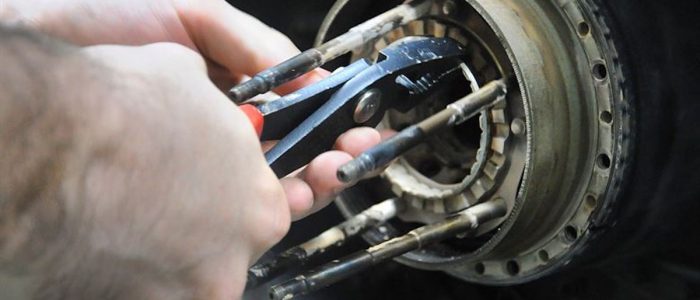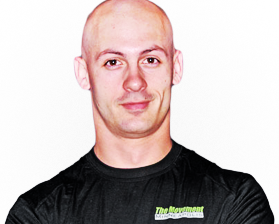
The other day I listened to a really beautiful episode of Krista Tippet’s On Being with Greg Boyle, a Jesuit priest who founded an organization called Homeboy Industries in L.A. The remarkable work that Homeboy does is one of those things I heard about years and years ago and then forgot about. Basically, Homeboy employs former gang members in a variety of businesses from bakery to screenprinting, and in doing so has created a viable path out of gangs for youth in L.A.
Anyway, at one point Greg very briefly explains the concept of “attachment repair.” I am not a psychologist nor do I play one on the Internet, but the basic premise is that if you grew up in a desolately poor neighborhood with a mom who was doing her best just to survive there’s a good chance you were never soothed nor did you learn to soothe yourself in a healthy and functional manner when you were developing. So while most of these kids have a type of resilience you and I will never have in spades, they also lack a different type of resilience to deal with the stresses and strife of life. Gangs very much fill those needs, so when you take away the gang you’re missing a huge piece of necessary function. A big part of what Homeboy Industries does is provides the environment where that attachment repair can take place.
It got me thinking about the pattern I’ve seen repeat with my gym members and training clients. Essentially, they begin to regain autonomy in a way that they haven’t expressed for ages, if ever.
It starts out as a simple thing. They come to the gym looking for someone to tell them what to do. But instead of doing exactly that, we give them choices and the tools to determine their own outcomes and make their own decisions. And it’s powerful, and there are second-order effects.
I’ve talked before about how people who join the gym tend to quit their jobs or end a major relationship within a few months of joining.
And it all comes back to regaining autonomy.
It seems harmless to outsource your grocery shopping to Blue Apron and your driving to Uber and your entertainment to Netflix, but there is a cost and it’s a high one at that. But it’s much bigger than the new tech darlings. It’s giving up the autonomy of your health by thinking that the doctor can always fix everything with a magic pill, which they can’t. It’s giving up the autonomy to eat food that nourishes you and doesn’t destroy the environment by opting for convenience and productized food. It’s relying on vast amounts of unsustainable energy to drive everywhere and walk nowhere.
Fitness is ground zero of regaining your personal autonomy. You start with the small choices of deciding what type of deadlift to do. It seems inconsequential, but it’s not. It’s your decision, your determination.
Then you start adding skills, becoming more capable and with every new capability there’s a new level of autonomy.
Pretty soon you don’t have to rely on anyone for anything, you get to choose to cooperate because you can not because you have to.
Autonomy repair is one of the first steps to repairing this broken society.



